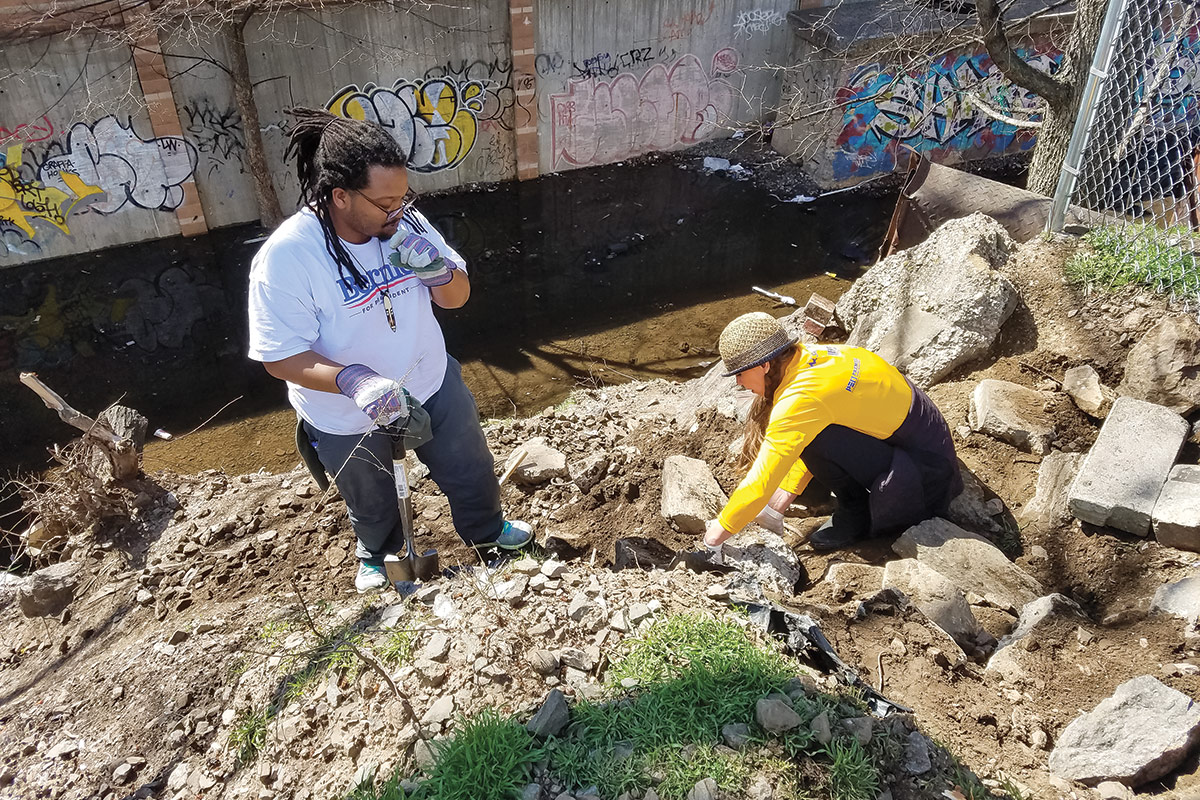
Leonardo Dominguez grew up in the CUNY system. Starting as an undergraduate student at John Jay College of Criminal Justice, he first dipped his toes in the pool of public health through an anthropology class project that took him and his fellow classmates to the South Bronx to work with injection drug users at a harm reduction center.
At the time, he was unaware that the field of public health even existed. After years of working in the area of harm reduction and substance abuse, a mentor suggested he consider a master’s in public health. He continued his work with injection drug users in the Bronx while simultaneously completing his undergraduate degree in anthropology and political science, and a vision of his future career soon began to take shape. He looked to CUNY’s graduate programs in public health and was drawn to CUNY’s social mission.
From the beginning of his graduate school experience, Dominguez felt welcomed by the CUNY SPH faculty.
“I had a lot of support,” he explains. “Whenever I had some problem or wasn’t understanding something I could go to them and they were just there.”
Exploring the epidemiology field, Dominguez realized his interests didn’t always align with the topics most often covered in his courses.
“I was the weird one in my class because I didn’t want to study cancer, and I didn’t want to study heart disease. I wanted to study drug users. I think I wrote a paper on drug users every semester,” he sheepishly admits. “It was fun to be able to apply these [epidemiological] skills to topics that I was interested in. The faculty facilitated that.”
Dominguez graduated this past May, and at the commencement ceremony was awarded a Dean’s Merit Award for Service for his work around the topic of a safe-injection site in the Bronx. Soon after finishing his class requirements in December, He began teaching at John Jay College, his undergraduate alma mater, and decided to include his students on a project to clean up and implement safe-injection sites at an outdoor shooting gallery in the Bronx, an area where substance users would come to inject themselves with drugs.
Their initial efforts to install porta-potties for use as safe-consumption spaces failed.
“Nobody came and used the porta-potties,” Dominguez recalls. “We thought this place was all chaos because that’s what it looks like from the outside, but it was a community and they had their habits and they had their practices. So we said, ‘Ok, let’s take a step back and see what we can do.’ ”
Dominguez and his students changed tactics and decided that instead of imposing safe-injection sites, they could better serve this community by bringing them much needed supplies like clean syringes, condoms, and clean socks. He began gardening in the area with his class, and even installed an awning under which community members could take shelter on rainy days. This project continued for 10 months, until the city of New York closed the gallery down and forced the community to disperse.
These days, in addition to teaching, Dominguez is working as a research analyst at the CUNY SPH affiliated Institute for Implementation Science in Population Health (ISPH). He is working with criminal justice data, applying epidemiological methods.
“I like this idea of working in the criminal justice field,” he says. “The goal is usually to intervene and to change something for the better, to make a small change and make it affect people in a large way.”
Dominguez is considering pursuing a doctoral degree to integrate his epidemiological skills into the criminal justice field. He is particularly interested in the decriminalization of drug use.
“Looking at criminal justice from an epidemiological point of view, there is all this data there, there is all this information there that could show us why arresting people for drugs is bad and has bad health outcomes for them.“
Dominguez believes that this type of policy change could have a big impact, but he is staunch about being able to back his case up with epidemiological evidence.
“If I can get this Rikers Island data in order and do all these [epidemiological] methods and give an actual presentation, it would make a much easier case for decriminalization.”
“That little change in law could be big. I don’t know what breadth of work needs to be done to get those changes to happen, but I feel epidemiology has a role to play.”
Asked if he has any parting thoughts, Dominguez replied, “Flint still doesn’t have clean water.”













